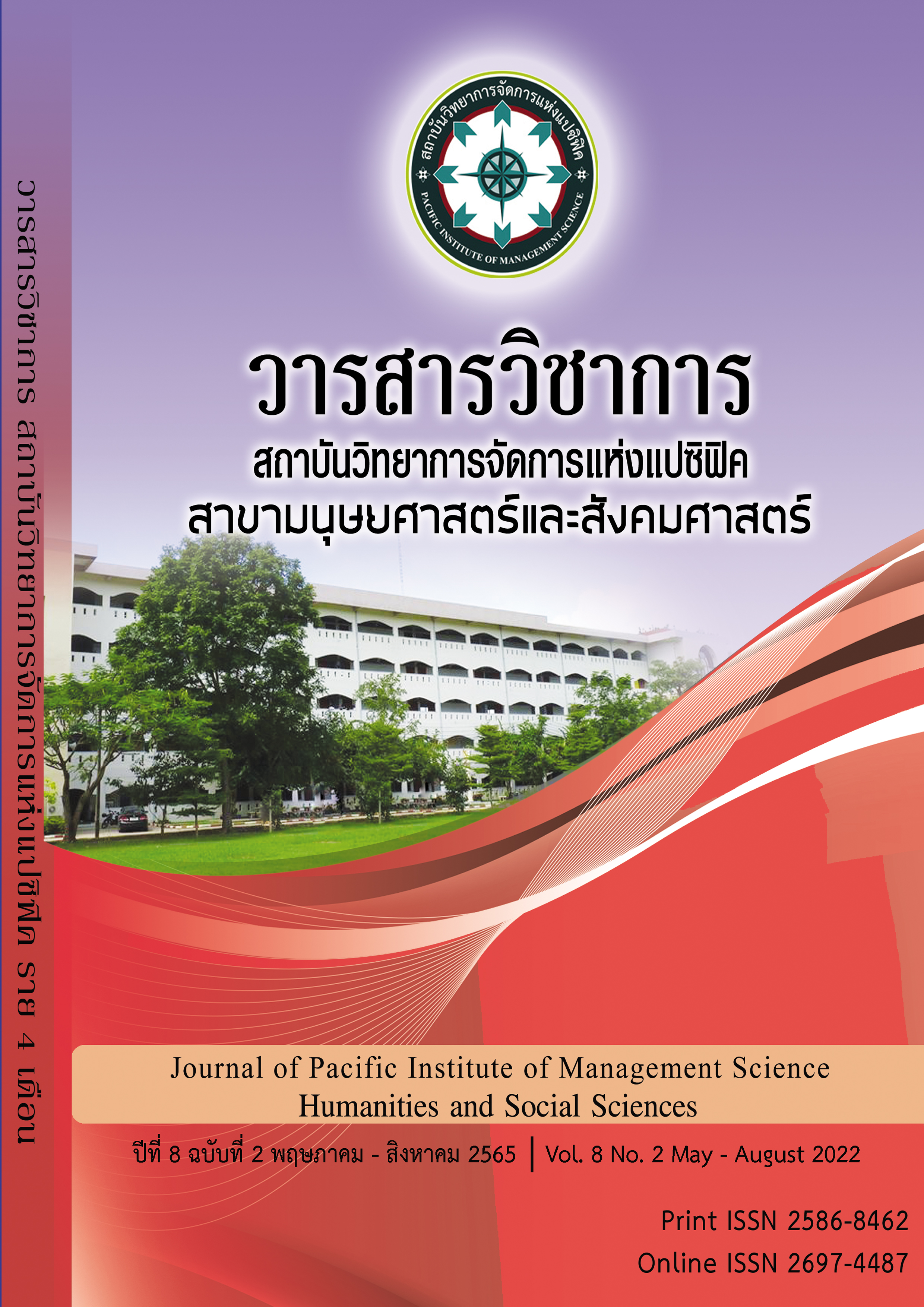ปรากฏการณ์วิทยา
คำสำคัญ:
ปรากฏการณ์วิทยาบทคัดย่อ
บทความวิชาการนี้มีวัตถุประสงค์นำเสนอมุมมองของปรากฏการณ์วิทยา ที่เป็นเครื่องมือในการศึกษาทางด้านปรัชญา และที่เกี่ยวข้องกับศาสตร์อื่นๆ ที่มีลักษณะเฉพาะโดยกฎเกณฑ์ต่างๆที่กำหนดไว้ในเบื้องต้นอันเป็นโครงสร้างของประสบการณ์หรือจิตสำนึกตามลักษณะของสิ่งที่ปรากฏขึ้นเชิงรูปธรรมและมีประสบการณ์เป็นสิ่งสำคัญที่ชี้เฉพาะ ปรากฏการณ์วิทยาได้แสดงความเป็นเอกลักษณ์แตกต่างจากปรัชญาสาขาอื่นๆ อย่างชัดเจนในช่วงต้นศตวรรษที่ 20 จากผลงานของ Husserl, Heidegger, Sartre, Merleau-Ponty ที่แสดงถึงเจตจำนงจิตสำนึกและมุมมองของบุคคลหนึ่งๆ ในด้านจิตใจ
เอกสารอ้างอิง
Baltzer-Jaray, K. (2021). Bogged Down in Ontologism and RealismRealism. Reinach’s Phenomenological Realist Response to Husserl. http://doi.10.1007/978-3-030-62159-9_8
Diekelmann N. Narrative pedagogy: Heideggerian hermeneutical analyses of lived experiences of students, teachers, and clinicians. Advances in Nursing Science. 2001; 23(3):53–71.
Finlay, L. (2013). Unfolding the phenomenological research process: Iterative stages of “seeing afresh”. Journal of Humanistic Psychology, 53(2), 172-201.
Heidegger, M. (1996). Being and time: A translation of Sein und Zeit. SUNY press.
Jedličková, L., Müller, M., Halová, D., & Cserge, T. (2021). Combining interpretative phenomenological analysis and existential hermeneutic phenomenology to reveal critical moments of managerial lived experience: a methodological guide. Qualitative Research in Organizations and Management: An International Journal.
Koch,T. (1995). Interpretive approaches in nursing research: the influence of Husserl and Heidegger. Journal of Advanced Nursing, 21, 827-836
Leonard V. W. A. (1989). Heideggerian Phenomeno-logic perspective on the concept of the Person. Advances in Nursing Science, 9, 40-55.
Marton, F., Hounsell, D., & Entwistle, N. J. (1997). The experience of learning: Implications for teaching and studying in higher education, Edinburgh Scottish Academic Press.
Omery A. (1983). Phenomenology: a method for nursing research. Advanced Nursing Science, 5, 49-63
Phattongma, P. W., Trung, N. T., Phrasutthisanmethi, S. K., Thepa, P. C. A., & Chi, H. (2022). Phenomenology In Education Research: Leadership Ideological. Webology (ISSN: 1735-188X), 19(2).
Piazza, A. (2021). The Knowledge of God: Realism as Natural Theology in Max Scheler’s Phenomenology of Religion.
Tattam, H. (2013). Time in the philosophy of Gabriel Marcel (Vol. 89). MHRA.
Van Manen M. (1990). Researching Lived Experience: Human Science for an Action Sensitive Pedagogy. State University of New York Press, New York.
Walter A.J. (1995). Phenomenology: Implications for nursing research. Journal of Advanced Nursing 1995, 22, 791-799
Wilding, C., & Whiteford, G. (2005). Phenomenological research: An exploration of conceptual, theoretical, and practical issues. OTJR: Occupation, Participation and Health, 25(3), 98-104.
ดาวน์โหลด
เผยแพร่แล้ว
ฉบับ
ประเภทบทความ
สัญญาอนุญาต
ลิขสิทธิ์ (c) 2022 สถาบันวิทยาการจัดการแห่งแปซิฟิค

อนุญาตภายใต้เงื่อนไข Creative Commons Attribution-NonCommercial-NoDerivatives 4.0 International License.
บทความที่ได้รับการตีพิมพ์เป็นลิขสิทธิ์ของ สถาบันวิทยาการจัดการแห่งแปซิฟิค
ข้อความที่ปรากฏในบทความแต่ละเรื่องในวารสารวิชาการเล่มนี้เป็นความคิดเห็นส่วนตัวของผู้เขียนแต่ละท่านไม่เกี่ยวข้องกับสถาบันวิทยาการจัดการแห่งแปซิฟิค และคณาจารย์ท่านอื่นๆในสถาบันฯ แต่อย่างใด ความรับผิดชอบองค์ประกอบทั้งหมดของบทความแต่ละเรื่องเป็นของผู้เขียนแต่ละท่าน หากมีความผิดพลาดใดๆ ผู้เขียนแต่ละท่านจะรับผิดชอบบทความของตนเองแต่ผู้เดียว







